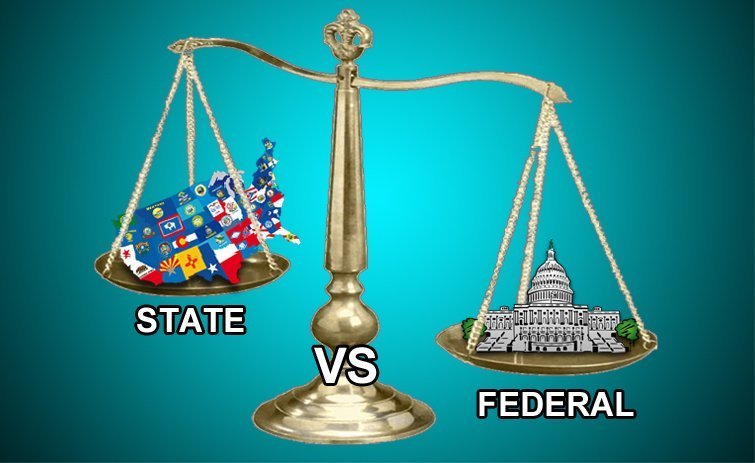June 25, 2020
12 Steps to a Healthier Law Practice in 2020: Step 6 – Advise on the Law
Happy Summer! In November 2018, 69 new or amended California Rules of Professional Conduct (“CRPC”) were thrust upon California’s more than 250,000 lawyers. These rules were renumbered and reorganized to align with the American Bar Association’s (“ABA”) Model Rules and replaced the 46 ethics rules that California lawyers had been following for nearly 30 years. Despite each of us having been responsible for adhering to these rules over the last year, many California lawyers and law firms still do not know, or do not fully appreciate, the significance of the modifications. Therefore, as we enter into this new decade and the second full year of these rules being in effect, I invite you and your firm to join my 12-step program to a healthier law practice in 2020 and the years to come. Each month I will feature an article on the key ethics rule changes aimed at guiding you and your firm to a healthier law practice by better managing your risk of liability. “Step 1 – Take Responsibility” was published in January; “Step 2 – Treat Others The Way You Want To Be Treated” was published in February; “Step 3 – Avoid Conflict” was published in March; “Step 4 – Money Does Not Buy Happiness” was published in April; and “Step 5 – Sharing is Caring” was published in May 2020.
You can access each article directly on this blog page or you can subscribe to this blog to ensure that you don’t miss any of the 12-steps. Please note that the articles on this blog are not legal advice and do not take into account specific facts or circumstances for which a tailored analysis and risk management plan is recommended.

STEP 6 – ADVISE ON THE LAW
California residents are entitled, as a matter of fairness, to understand “their rights, duties and liabilities” under California law. Bar Association of San Francisco Ethics Opinion No. 2015-1 (June 2015), at p. 3; see also Los Angeles County Bar Association Formal Opinion No. 527 (August 12, 2015). In 1973, then Associate Justice of the United States Supreme Court, Justice Lewis Powell, stated that the duty of a lawyer “is to further the interests of his clients by all lawful means, even when those interests are in conflict with the interests of the United States or of a State.” Application of Griffiths (1973) 413 U.S. 717, 724, n. 14.
In line with these principles, and building upon the ethics opinions of the Bar Association of San Francisco (Opn. No. 2015-1) and the Los Angeles County Bar Association (Opn. No. 527), which each analyzed whether California lawyers could ethically advise a client on California’s marijuana laws under former CRPC Rule 3-210 (Advising the Violation of Law), the State Bar of California recently published its long-anticipated Formal Opinion 2020-202 (May 2020): Advising a Cannabis Business (“Opinion”). Although the State Bar’s Opinion addresses a factual scenario focused on providing legal services to a cannabis business, the overall guidance it offers as to compliance with current Rule 1.2.1 (Advising or Assisting the Violation of Law) can be applied by California attorneys practicing in any area of law where there is a conflict between state, federal or tribal law, perhaps including, but not limited to, immigration law. Importantly, the Opinion concludes: “Under the California Rules of Professional Conduct, a California-licensed lawyer is permitted to advise and assist a client in interpreting and complying with California law, including laws permitting and regulating commerce in cannabis, even if the client’s conduct violates federal law, provided that the lawyer informs the client of the conflict between state and federal law and does not advise or assist the client in concealing or evading prosecution for that conduct.”
CRPC Rule 1.2.1 essentially follows the language of American Bar Association (“ABA”) Model Rule 1.2(d), making it unethical for a lawyer to “counsel a client to engage, or assist a client, in conduct that the lawyer knows is criminal or fraudulent, but a lawyer may discuss the legal consequences of any proposed course of conduct with a client and may counsel or assist a client to make a good faith effort to determine the validity, scope, meaning or application of the law.” Rule 1.2.1 splits Model Rule 1.2(d) into two parts. Paragraph (a) of Rule 1.2.1 states: A lawyer shall not counsel a client to engage, or assist a client in conduct that the lawyer knows is criminal, fraudulent, or a violation of any law, rule, or ruling of a tribunal. Paragraph (b) states: Notwithstanding paragraph (a), a lawyer may: (1) discuss the legal consequences of any proposed course of conduct with a client; and (2) counsel or assist a client to make a good faith effort to determine the validity, scope, meaning, or application of a law, rule, or ruling of a tribunal. Paragraphs (a) and (b) apply whether or not the client’s conduct has already begun and is continuing. Rule 1.2.1, Comment [1].
Although sometimes referred to as the “marijuana rule” or “cannabis rule”, neither Rule 1.2.1 nor its comments include an explicit reference to marijuana/cannabis. In fact, the California State Bar’s Commission for the Revision of the Rules of Professional Conduct (“Commission”) deliberately did not adopt an explicit marijuana example in Rule 1.2.1 even though it was urged by public comment because “California laws regulating marijuana cultivation and consumption are subject to change in the near future.” See Rule 1.2.1 Executive Summary at p. 2. However, unlike Model Rule 1.2 or California’s former Rule 3-210, Rule 1.2.1 includes Comment [6], which provides additional direction for California lawyers who advise on conflicting state, federal or tribal laws, and is analyzed in great depth in the recent CA Bar’s opinion. Comment [6] states (italics added for emphasis):
Paragraph (b) permits a lawyer to advise a client regarding the validity, scope, and meaning of California laws that might conflict with federal or tribal law. In the event of such a conflict, the lawyer may assist a client in drafting or administering, or interpreting or complying with, California laws, including statutes, regulations, orders, and other state or local provisions, even if the client’s actions might violate the conflicting federal or tribal law. If California law conflicts with federal or tribal law, the lawyer must inform the client about related federal or tribal law and policy and under certain circumstances may also be required to provide legal advice to the client regarding the conflict (see rules 1.1 and 1.4).
Although Comment [6] was specifically added to include a provision “that would provide lawyers with sufficient assurance that they will not be subject to discipline,” because “[l]awyers should be able to provide advice to clients on how to comply with the law without the lawyer being subject to the specter of discipline for unavoidably ‘facilitating’ the violation of federal law[,]” many believe that Comment [6] on its face does adequately express such an assurance, even if intended. See Executive Summary to Proposed Rule 1.2.1 at p. 12. While the rules and comments in other states expressly allow lawyers to assist in “conduct” that complies with state law but violates federal law, California’s Comment [6] only explicitly allows a lawyer to assist in “drafting or administering, or interpreting or complying with, California laws.” The uncertainty encircling Rule 1.2.1 was one of the key reasons Opinion 2020-202 was drafted.
In support of the guidance provided by the drafters of the Opinion, California’s Committee on Professional Responsibility and Conduct (“COPRAC”), the Opinion points to the legislative history of Rule 1.2.1, which clarifies that the words “interpreting” and “complying” were deliberately used in Comment [6] because the words are broad enough to allow lawyers to render all services that lawyers customarily provide for business clients, including, for example, but not limited to, forming entities, applying for permits, engaging in negotiations, transacting real estate purchases, acquiring inventory, or providing general corporate and regulatory counseling. This is supported by the statements made by the Commission in response to public comments. See the Board of Trustees of the State Bar of California, Regulation and Discipline Committee Agenda Item 54-121
from the July 19, 2018 meeting at Attachment 3 [Summary of Public Comments with Commission Responses], at pp. 19-24.
In regard to cannabis law specifically, the Opinion’s analysis of Rule 1.2.1 is further strongly supported and consistent with the recent amendment of the crime-fraud exception to California’s evidence rule regarding attorney-client privilege. CA Evidence Code section 956(b) was amended to expressly state that the crime-fraud exception to attorney-client privilege does not apply to “legal services rendered in compliance with state and local laws on medicinal cannabis or adult-use cannabis, and confidential communications provided for the purpose of rendering those services are confidential communications between client and lawyer, as defined in Section 952, provided the lawyer also advises the client on conflicts with respect to federal law.”
The State Bar’s opinion further advises that although Rule 8.4 (Misconduct) provides that it is “professional misconduct for a lawyer to: . . . (b) commit a criminal act that reflects adversely on the lawyer’s honesty, trustworthiness, or fitness as a lawyer in other respects[,]” so long as the lawyer’s conduct at issue complies with Rule 1.2.1 and, in particular, with the balance struck in that rule between promoting the objectives of state law and candid advice and non-deceptive conduct concerning state and federal law, that conduct should not be viewed for disciplinary purposes as “reflecting adversely on the lawyer’s honesty, trustworthiness, or fitness as a lawyer in other respects.” Opinion at p. 10. However, “[i]f a lawyer comes to know or reasonably should know that a client expects assistance not permitted by these rules or other law or if the lawyer intends to act contrary to the client’s instructions, the lawyer must advise the client regarding the limitations on the lawyer’s conduct.” Rule 1.2.1, Comment [5]. “In some cases, the lawyer’s response is limited to the lawyer’s right and, where appropriate, the lawyer may have a duty to resign or withdraw in accordance with rules 1.13 and 1.16.” Rule 1.2.1, Comment [2].
Without legal representation, those who want to engage in conduct that is permitted under state law, but illegal under federal law, may not fully understand their rights, duties, and liabilities. Prohibiting lawyers from representing clients who seek advice in an effort to comply with a state law that conflicts with federal or tribal law, would deprive many California residents, consumers and businesses from essential legal representation. As emphasized in the State Bar’s Opinion, engaging in such legal services is undoubtedly not without its perils, so it is essential that both the lawyer and the client enter into such a relationship with their eyes wide open to the details of the conflicting laws, as well as the inherent risks and potential consequences.
Please contact author, Kendra Basner, if you have any questions about this article or if you would like guidance as to the application of or compliance with these rules.

